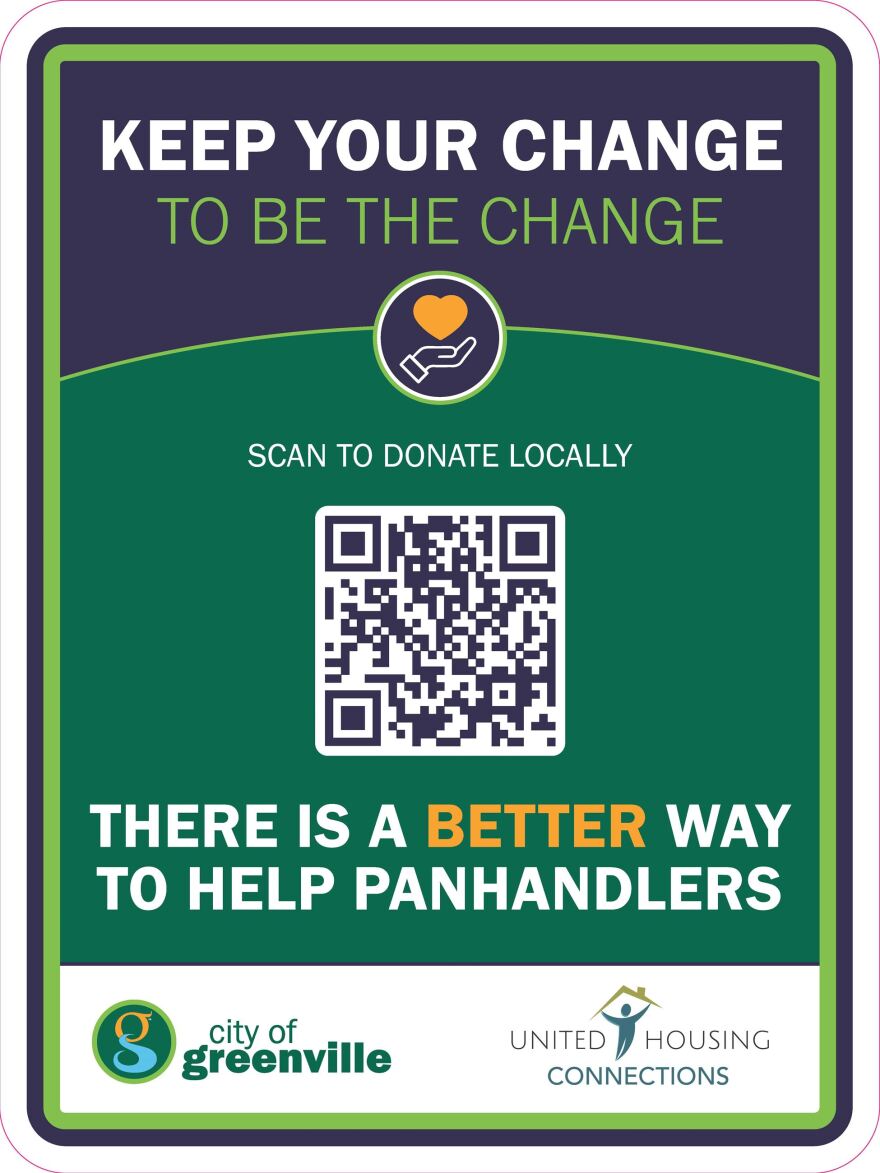Panhandlers are a hallmark of certain intersections in Wilmington: 16th and Dawson, 3rd and Wooster, and a dozen other hotspots.
Those activities were the target of a presentation at city council’s Monday morning agenda meeting, apparently at the behest of three unnamed council members.
Wilmington Communications Director Jerod Patterson kicked it off.
“Panhandling is not a sustainable solution to meeting real needs, it may provide for a momentary fix just by its very nature, but it doesn't continue to meet needs on a longer term basis," he said. "It also is not connected to real systems of social support that can address root causes.”
The city has periodically received complaints or concerns about those who panhandle in the medians of major roadways. Some complaints focused on the needs of the panhandlers, while other complaints focused on traffic and safety concerns.
The Legality of Panhandling
City Attorney John Joye said panhandling is a protected right under the constitution. "The goal of the First Amendment is not peace and comfort," he said. "In fact, peace and comfort are not even necessarily a priority for the First Amendment. when we are talking about panhandling, we are talking about First Amendment activity.”
That doesn’t mean it’s impossible to regulate, particularly since many related behaviors of concern are still illegal.
"Instead of regulating solicitation or panhandling, specifically, we can enforce the laws that really get to what we are concerned about, which is traffic-stopping, traffic safety, communicating threats, or otherwise, we can enforce the laws that govern that,” Joye explained.
Assistant Police Chief David Oyler said the police plan to do just that, by focusing on specific hot-spots for panhandling.
“One of the things we're going to start doing is enforcing existing laws,” he said, though he didn't go into detail, citing "tradecraft issues."
Joye also said council ought to tidy up Wilmington’s codes, because there is an unenforceable ordinance on the books that forbids panhandling. Higher courts, including the Supreme Court, have found that these types of laws are unconstitutional, but because they’re still on the books, citizens often call and demand they’re enforced.
Finding Other Solutions
Instead, deputy city Manager Thom Moton suggested the city focus on more systemic, helpful solutions to panhandling — including putting up signs soliciting donations from concerned citizens. He showed the council members a photo of a sign, and described it: “Keep your change be the change. There's a QR code that individuals can scan, then there's a better way to help panhandlers.”

If the city copies that sign from Greenville, South Carolina, the donations would go to local non-profits focused on homelessness and similar issues.
“Nonprofits, while robust in the region here, also have limited funding," Moton said. "We still find that there are limited emergency and other kinds of housing options that can treat the whole person to perhaps give them a more sustainable, long-term solution where you're not going day to day on the on the intersection.”
But according to a local mental health advocate, who spoke to WHQR on background, the QR code idea wouldn’t solve every problem for those in need. Many panhandlers are on disability, and having money come to them through more official sources could cause them to lose those benefits. Getting more than $1,350 a month could cause someone to lose their disability benefits, which forces beneficiaries to live in poverty or seek income under the table.
The advocate was similarly concerned with a solution that Mayor Bill Saffo offered up, which appeared to be involuntary commitment at a Trillium facility.
“If somebody's drinking or what have you, they can take them [to Trillium] immediately, the police department can do that immediately," Saffo said. "Or if it's something to do with drugs and addiction to drugs or alcohol, there's opportunities there to take people there with no insurance, which is a very big thing for us.”
The advocate told WHQR that these kinds of involuntary commitments are largely reserved for people who are homicidal or suicidal: it’s tied to mental health more than addiction.
Councilman Kevin Spears critiqued the entire discussion, largely because he wasn’t involved in its development. He also suggested the solutions presented were just meant to appease those who've sent in complaints.
“We haven't done the necessary work to address this issue. It seems a little premature, seems a little rushed,” he said.
Councilman Luke Waddell had a more positive view on the matter.
“We have legitimate ordinances currently on the books that can be enforced and should be enforced as our city attorney, and Chief Oyler both brought forward. So I look forward, I think we're taking a proactive approach to this issue," he said.
Council members Clifford Barnett and Charlie Rivenbark had similar positive comments for staff as well. Council will discuss this issue again at the main city council meeting Tuesday night, in order to bring the matter up in front of a larger audience.


